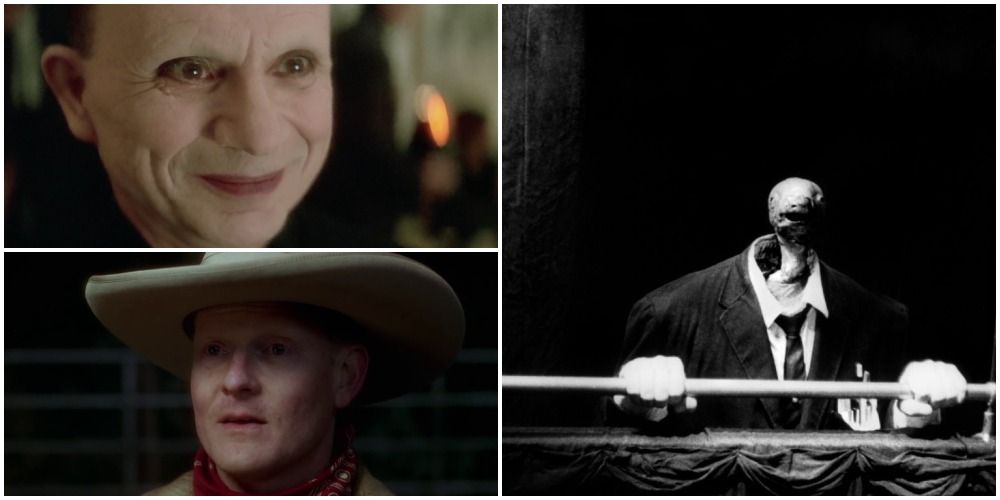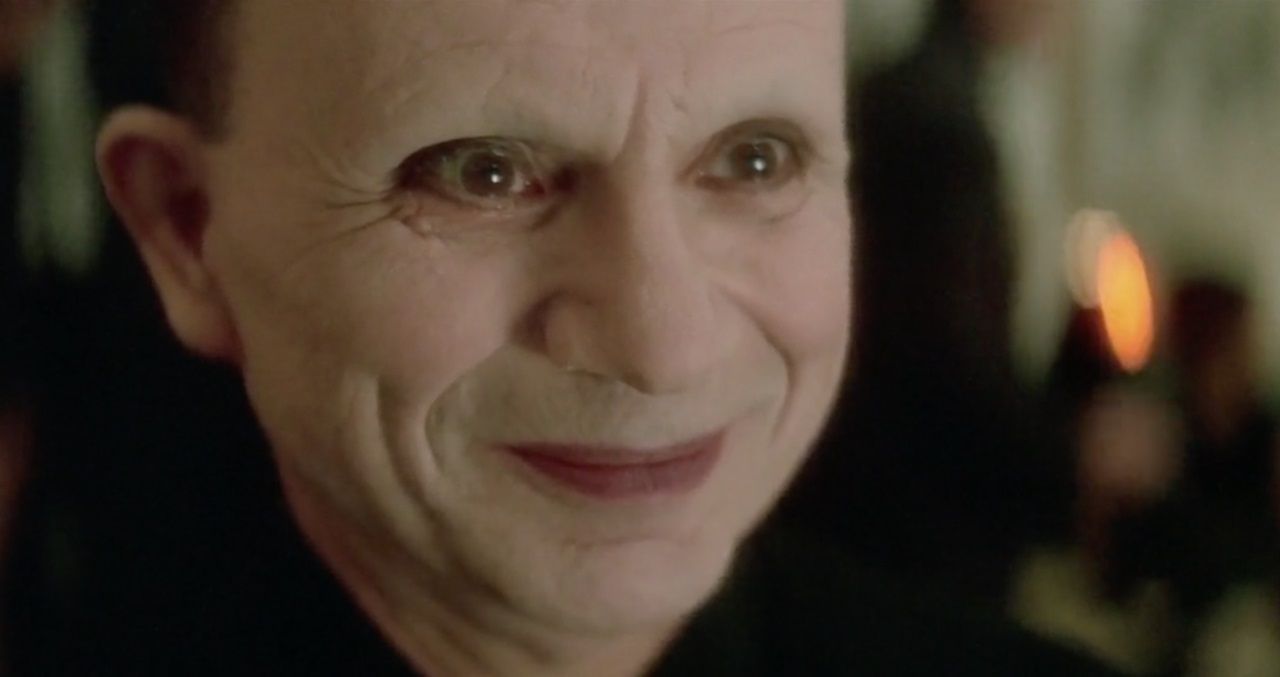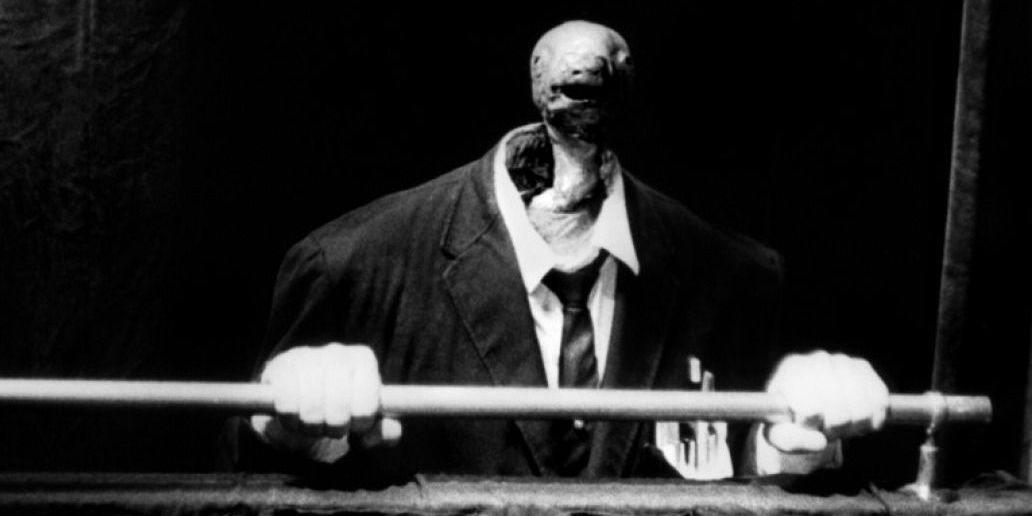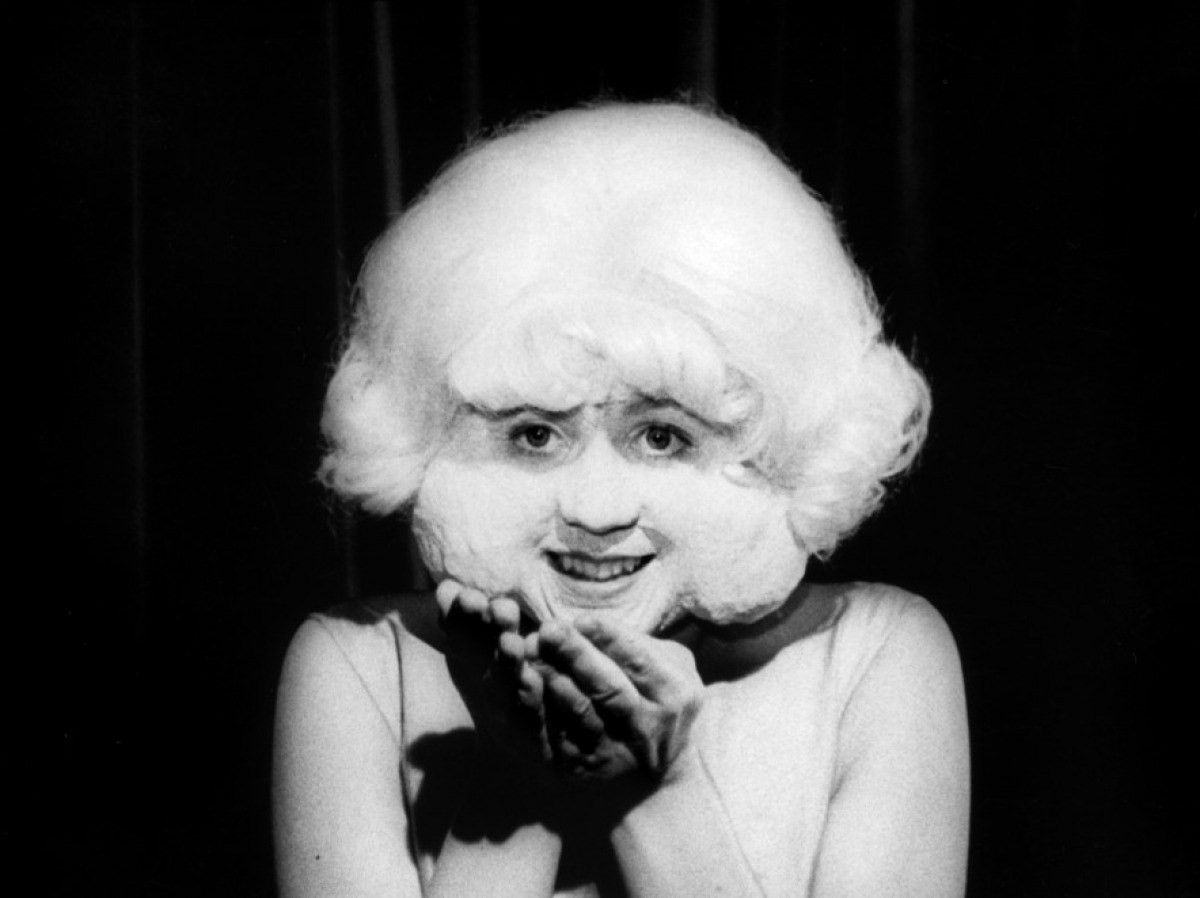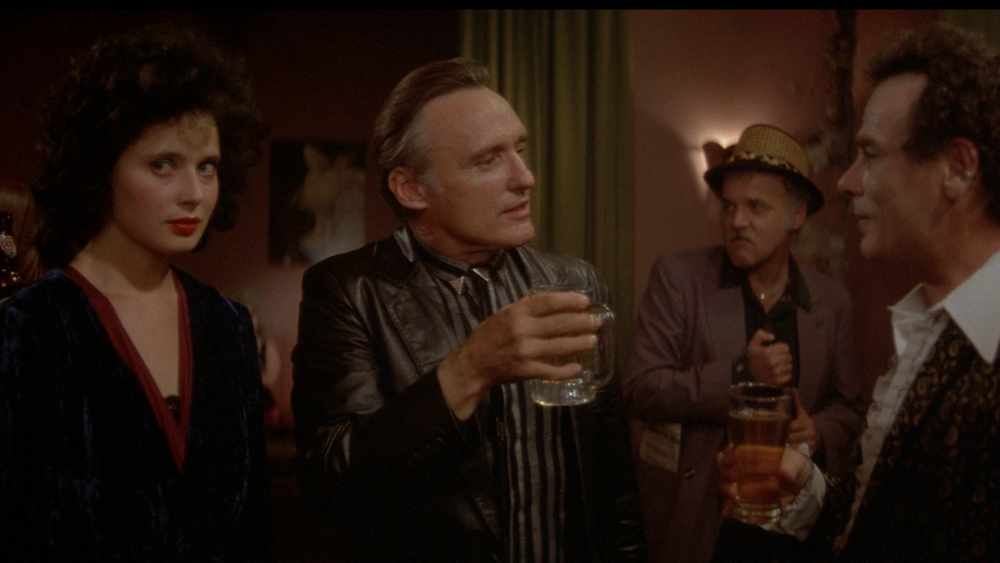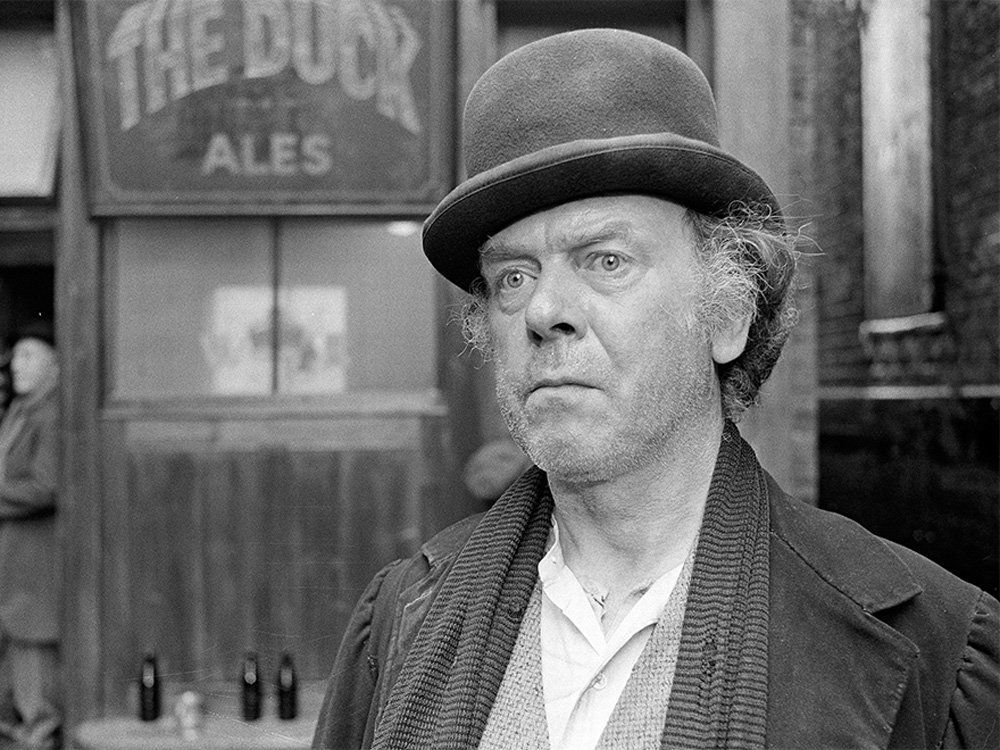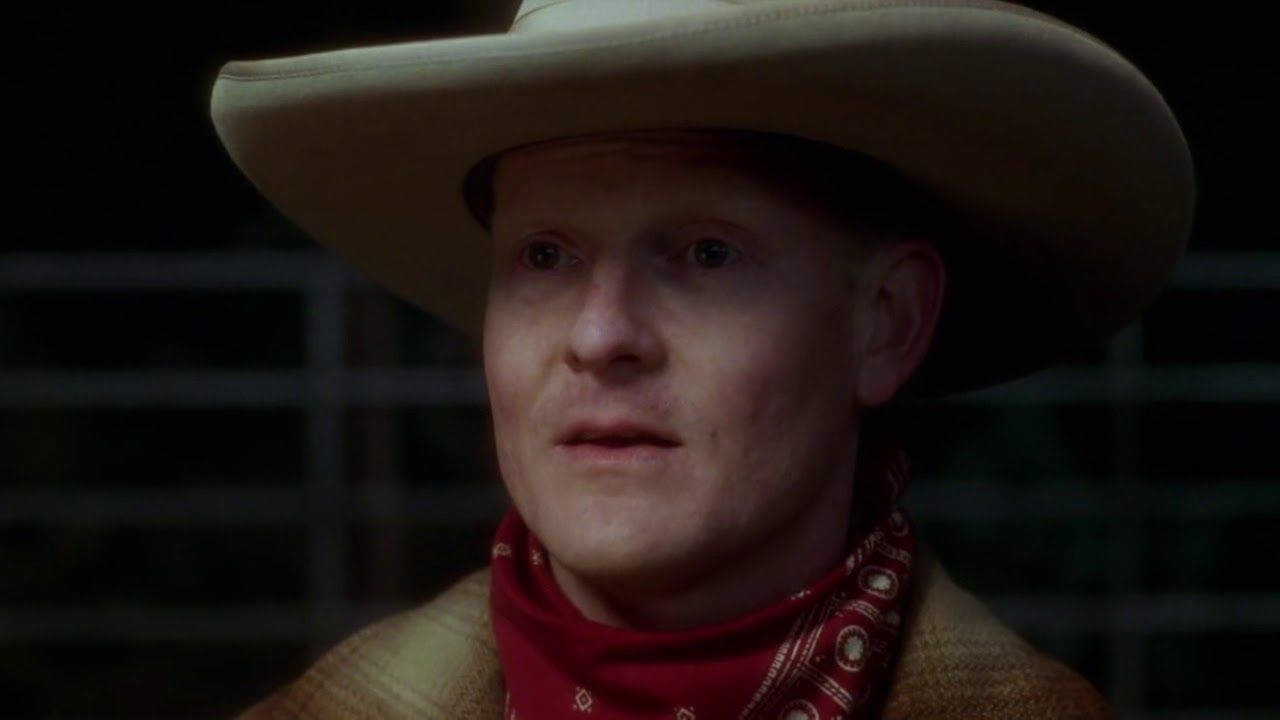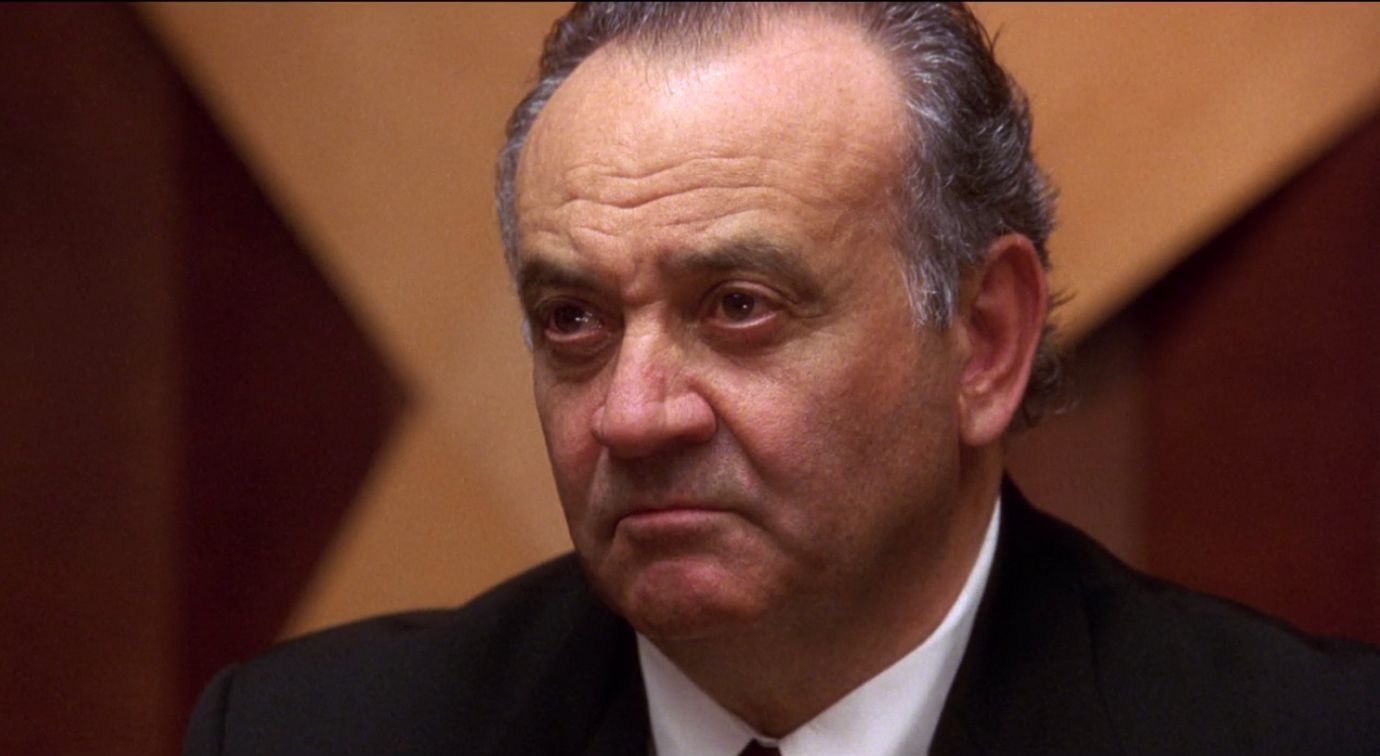David Lynch has a well-earned reputation as a director who makes weird and confusing movies. While he is more versatile than his reputation would suggest, many of his films have become known for their strange surreal plots and Lynch's refusal to explain them. This is because he has always been fascinated with the idea that different people can draw drastically different meanings out of the same thing, and prefers the audience draw their own conclusions about his work. His distinct blend of classical Hollywood and European art film styles makes for some very strange and disorienting films.
And with such a unique style, it is unsurprising that Lynch has a few characters who have stood out. Even some of his more straightforward films have strange and unsettling performances. Several of his characters are so unsettling because they are confusing and otherworldly, but others go the opposite direction- being disturbing because they're more realistic.
7 Mystery Man- Lost Highway
Robert Blake's performance as the so-called "Mystery Man" is one of the standout roles in Lost Highway. He does not even have much screentime but his presence is constantly felt. From the moment he first appears, it is clear that something is very wrong with him. Just the excessively pale makeup already makes him look wrong, not helped by the creepy smile. And that is before he begins talking. The first thing he does is brag about being in Fred Madison's house while at a party (and confirming he is in fact somehow in both places at once). And from there he seems to stalk both Fred and Pete, who just cannot escape him.
Adding to the discomfort is the film's refusal to explain just who the Mystery Man is. Theories have been proposed but no clear answer is given. Is he human? Is he something else? Is he even real or is he some personification of Fred/Pete's inner thoughts?
6 The Baby- Eraserhead
Eraserhead has become notorious for its unsettling and incomprehensible structure. The story, as much as it can be followed, concerns a man named Henry Spencer who is forced to marry his ex after finding out she is pregnant, and the difficulties that come with parenting. In order to convey the stress and dread that comes with being a reluctant parent, Lynch allegorized those feelings in the form of a "baby" that looks more like a strange wormlike creature. This thing cries endlessly no matter what Henry does.
As if the baby itself were not disturbing enough, it also takes part in some very bizarre sequences. Of note is the scene where Henry is decapitated and his head is replaced by that of the baby, showing how much it has taken over his life, while his own head falls through a pool of blood and ends up in a factory where it is made into pencils.
5 The Lady in the Radiator- Eraserhead
Eraserhead has its share of messed up and disturbing moments, but one of the standouts has to be the mysterious "Lady in the Radiator"- a strange woman who apparently lives in Henry's radiator and sings a song about Heaven. Her strange cheek extensions help to make her look extremely grotesque, it can be hard to look at them without wanting to vomit. Like many of David Lynch's characters, he never offers an explanation for just who this woman is. Is she good or bad? Does she literally live in a radiator or is this a metaphor for something? Is she real or a construct of Henry Spencer's mind?
4 Frank Booth- Blue Velvet
Dennis Hopper had a talent for playing deranged psychopaths, but few of his roles stood out quite as much as the main antagonist of Blue Velvet. Frank Booth is unsettling for very different reasons from other characters on this list. He is very clearly human, and his role in the film's events is clearly explained. He lacks any visual characteristics that make him seem otherworldly or unsettling at a glance. And yet he still has a very imposing presence. The moment he walks onscreen his tone of voice and body language exposes his cruel nature. This is a man who is disturbing not because he is otherworldly, but because he is grounded in reality.
Booth's obvious obsession with sex is unsettling, to the point where he kidnaps a woman's husband and son to force her into being his mistress, an act that comes with the disturbing image of a middle-aged man engaging in infantile fantasies. But even in his more quiet moments, he can be unpredictable. He can act polite but only with an extremely menacing tone that makes his true intentions clear, and can jump straight from acting polite to yelling profanities in a manner of seconds at the slightest thing. Do not ask him for Heineken.
3 Mr. Bytes- The Elephant Man
Similar to Frank Booth, Freddie Jones' portrayal of Mr. Bytes is unsettling not because of any strange or otherworldly qualities enhanced by uncanny makeup, but because of his very realistic cruelty. He is a circus ringmaster by profession, specifically one who specializes in the collecting of so-called "freaks"- people with unusual deformities put on display to the fascination and disgust of audiences. Because of this, he actually goes against Lynch's tendency to present strange otherworldly characters. Instead, he profits by exploiting an ableist society, taking those it casts out and stripping them of their humanity, passing them off as surreal nightmarish monsters when most are in fact, decent people.
2 The Cowboy- Mulholland Drive
The strange man known only as "The Cowboy" is already a weird addition to Mulholland Drive, looking like he walked out of a classical western in a film set in urban Hollywood. He has the more average look of Frank Booth or Mr. Bytes, but the otherworldly presence of the Mystery Man or the Lady in the Radiator. Even director Adam Kesher, who is pressed into meeting the Cowboy, is visibly confused by his encounter. And the Cowboy does not even need to do anything. He never actually issues any threats but something about his tone of voice seems to make him intimidating, and provides the sense that he is someone Kesher does not want to get on the bad side of. The encounter finally confirms that indeed Kesher is not the one in control of his own film, and the only way out of his trouble is to give in to his producers' demands.
Adding to the unease is the Cowboy's final lines to the director. He claims that Kesher will see him one more time if he does cooperate, twice more if he does not. He does make two more appearances later in the film, but they leave more questions. One scene has him addressing Rita, not Adam Kesher, telling her it is "time to wake up" signaling the film's surreal last act. His last appearance is in a crowd at a party where he has no dialogue. Were these the appearances he was referring to? His sudden appearance in Betty's apartment seems to suggest there is more to him than he is letting on.
1 Luigi Castigliane- Mulholland Drive
Mulholland Drive is very much about the dark side of Hollywood that is hidden beneath its glamourous image. One of the moments that becomes clearest is the appearance of Luigi Castiglione, a studio executive who behaves suspiciously like a mobster. From the moment he leaves his fancy limo with a large briefcase it is clear that he is a man of power, and when he meets with Adam Kesher it is clear that, contrary to what was claimed seconds earlier, he is not merely here to provide "suggestions." The line "this is the girl" gets repeated several times as Camilla Rhodes' photo is presented, and he intends to make sure she gets the part.
The mobster-like personality of Castiglione is a commentary on the business side of Hollywood, which has a reputation for putting profits over the aesthetic value of its products. The sides of business and art often clash in the filmmaking world, and there are plenty of stories about executives using their authority to impede a film's production. Adding to the unease of Castiglione is his brief appearance near the end, where he is seen glaring menacingly at Diane Selwin, something that comes with some very ominous implications.

